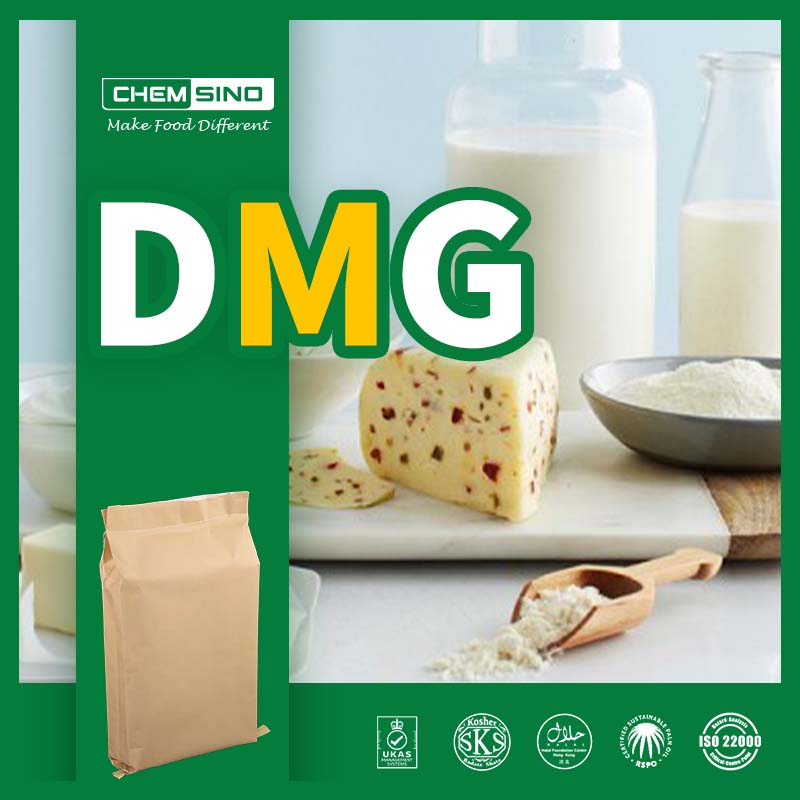Discover the Advantages of Utilizing an Emulsifier in Food for Boosted Culinary Experiences
Emulsifiers are typically overlooked yet vital components in cooking techniques. They assist in the blending of disparate active ingredients, enhancing both flavor and structure. By ensuring stability, emulsifiers stop the unpleasant separation of mixtures. Their adaptability covers various applications, from sauces to dressings. Recognizing their function can bring about significant enhancements in food top quality and presentation. What details benefits do emulsifiers use that can transform daily meals right into extraordinary cooking experiences?
Recognizing Emulsifiers: What They Are and How They Function
Emulsifiers play an important duty in the food market, working as agents that facilitate the blending of water and oil, two compounds that typically do not blend. These compounds have both hydrophilic (water-attracting) and hydrophobic (oil-attracting) homes, allowing them to support mixtures by minimizing the surface area tension between both phases. Typical emulsifiers consist of lecithin, mono- and diglycerides, and certain proteins.
When contributed to food, emulsifiers produce a steady solution, avoiding separation and making sure an uniform texture - Emulsifier In Food. They are important in numerous applications, varying from salad dressings and mayo to gelato and sauces. By keeping the stability of mixes, emulsifiers not just improve the aesthetic appeal of food however additionally improve mouthfeel and uniformity. Their capacity to stabilize emulsions makes them crucial in modern food formulation, adding substantially to the quality and service life of various products
The Function of Emulsifiers in Taste Improvement
While usually ignored, emulsifiers greatly add to flavor improvement in food. They play a necessary duty in enhancing the overall preference experience by ensuring that flavor compounds are equally dispersed throughout a dish. By maintaining solutions, such as sauces or dressings, emulsifiers protect against the splitting up of oil and water, permitting flavors to fuse together extra efficiently. This uniform circulation not only increases the preference but additionally assures that each bite is regularly delicious.
In addition, emulsifiers can improve the understanding of certain flavors, making them much more noticable on the taste buds. They might connect with certain active ingredients, aiding to launch volatile flavor substances that add to a meal's fragrant profile. Subsequently, using emulsifiers can substantially raise the cooking experience, transforming easy dishes right into facility and delightful flavor trips. Their refined yet impactful role in flavor enhancement should not be ignored in the art of food preparation.
Emulsifiers and Texture: Creating Creamy and Velvety Dishes
The impact of emulsifiers prolongs beyond flavor improvement to the domain of texture, where they contribute in creating luscious and creamy dishes. By helping with the uniform distribution of fats and water, emulsifiers allow the formation of secure solutions, leading to a luxurious mouthfeel. This is especially evident in items like mayonnaise, sauces, and dressings, where a smooth, velvety uniformity is desired.
Emulsifiers such as lecithin and mono- and diglycerides function to lower surface stress between components, enabling a harmonious blend that improves the sensory experience. The velvety appearance achieved with emulsification can boost recipes, making them extra attractive and satisfying. Furthermore, the capability to develop a silky structure enables chefs to include different active ingredients without endangering uniformity, resulting in innovative cooking creations. Basically, emulsifiers play a vital role in changing common recipes into amazing culinary experiences with texture improvement.
Security Issues: How Emulsifiers Prevent Splitting Up
A vital element of cooking emulsifiers is their capacity to avoid separation, guaranteeing that products preserve their desired appearance and look with time. Emulsifiers function by supporting mixes of oil and water, which naturally tend to divide because of differences in straight from the source thickness and polarity. By lowering surface area stress at the oil-water user interface, emulsifiers assist in the formation of stable emulsions, permitting an uniform circulation of components.

Usual Emulsifiers in Cooking and Their Applications
Comprehending the numerous emulsifiers typically made use of in food preparation reveals their substantial functions in enhancing food structure and stability. Lecithin, originated from egg yolks or soybeans, is extensively employed in mayo and salad dressings, offering a luscious consistency. Mustard, also an emulsifier, help in supporting vinaigrettes while conveying flavor.


Another popular emulsifier is xanthan periodontal, regularly made use of in gluten-free baking and sauces for its thickening properties. Guar gum tissue offers a comparable objective, improving the structure of ice lotions and milk products.
Mono- and diglycerides, often discovered in refined foods, assistance boost service life and keep structure. Casein, a milk healthy protein, is utilized in cheese-making and velvety sauces, contributing to a smooth mouthfeel. Each of these emulsifiers plays an important role in cooking applications, preventing and making sure desirable appearances splitting up in diverse food.
Frequently Asked Questions
Are Emulsifiers Safe for People With Food Allergies?
Emulsifiers can be safe for people with food allergic reactions, depending upon the specific emulsifier utilized. It is vital to determine the source of the emulsifier, as some may cause allergic responses in delicate individuals.
Exactly How Do Emulsifiers Influence the Nutritional Material of Food?
Emulsifiers can affect the nutritional material of food by improving vitamins and mineral absorption and enhancing texture. Their visibility may likewise thin down certain nutrients, depending on the food matrix, possibly changing total nutritional worth.
Can Emulsifiers Be Made Use Of in Vegan Cooking?
Emulsifiers can be properly used in vegan food preparation, providing appearance and stability to recipes. Plant-based emulsifiers like lecithin, derived from soy or sunflower, assistance mix ingredients, boosting the general top quality of vegan cooking productions.
What Are the Environmental Impacts of Emulsifier Manufacturing?
The environmental effects of emulsifier production typically consist of deforestation, water contamination, and high power intake. In addition, some resources of emulsifiers can add to biodiversity loss, increasing problems regarding sustainability in food manufacturing methods.
How Do Emulsifiers Compare to All-natural Thickeners in Cooking?
Emulsifiers use smoother structures and improved stability contrasted to all-natural thickeners, which can impart distinct flavors - Emulsifier In Food. While emulsifiers improve mouthfeel and appearance, all-natural thickeners supply more health benefits and can add to the dish's flavor account
When added to food products, emulsifiers create a steady emulsion, stopping splitting up and ensuring a consistent appearance. While frequently ignored, emulsifiers considerably add to taste improvement in food products. Comprehending the various emulsifiers typically anchor used in cooking reveals their substantial duties in boosting food appearance and stability. Emulsifiers Find Out More can be secure for individuals with food allergic reactions, depending on the particular emulsifier used. Emulsifiers can affect the dietary content of food by boosting nutrition absorption and improving structure.